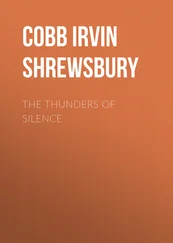Irvin Cobb - From Place to Place
Здесь есть возможность читать онлайн «Irvin Cobb - From Place to Place» — ознакомительный отрывок электронной книги совершенно бесплатно, а после прочтения отрывка купить полную версию. В некоторых случаях можно слушать аудио, скачать через торрент в формате fb2 и присутствует краткое содержание. Жанр: foreign_prose, foreign_antique, на английском языке. Описание произведения, (предисловие) а так же отзывы посетителей доступны на портале библиотеки ЛибКат.
- Название:From Place to Place
- Автор:
- Жанр:
- Год:неизвестен
- ISBN:нет данных
- Рейтинг книги:4 / 5. Голосов: 1
-
Избранное:Добавить в избранное
- Отзывы:
-
Ваша оценка:
- 80
- 1
- 2
- 3
- 4
- 5
From Place to Place: краткое содержание, описание и аннотация
Предлагаем к чтению аннотацию, описание, краткое содержание или предисловие (зависит от того, что написал сам автор книги «From Place to Place»). Если вы не нашли необходимую информацию о книге — напишите в комментариях, мы постараемся отыскать её.
From Place to Place — читать онлайн ознакомительный отрывок
Ниже представлен текст книги, разбитый по страницам. Система сохранения места последней прочитанной страницы, позволяет с удобством читать онлайн бесплатно книгу «From Place to Place», без необходимости каждый раз заново искать на чём Вы остановились. Поставьте закладку, и сможете в любой момент перейти на страницу, на которой закончили чтение.
Интервал:
Закладка:
However, this speculation had no part in the thoughts of the two startled firemen at the moment of the finding of the body. What most interested them, next only to the discovery of the presence of the dead man there in the same room with them, was a queer combination of shadows which played up and down against the wall beyond the bed, it being plainly visible in the glare of the small conflagration just outside.
With one accord they turned about, and then they saw the cause of the phenomenon, and realised that it was not very much of a phenomenon after all, although unusual enough to constitute a rather curious circumstance. A crippled, tailless rat had somehow entangled its neck in a loop at the end of the dangling cord of the half-drawn shade at the side window on the opposite side of the room and, being too weak to wriggle free, was still hanging there, jerking and kicking, midway of the window opening. The glow of the pile of burning leaves and brush behind and beyond it, brought out its black outlines with remarkable clearness.
The patterned shadow upon the wall, though, disappeared in the same instant that the men outside began spraying their chemical compound from the two extinguishers upon the ambitious bonfire to douse it out, and one of the firemen slapped the rat down to the floor and killed it with a stamp of his foot.
CHAPTER II
THE BROKEN SHOELACE
IN the aching, baking middle of a sizzling New York's summer, there befell New York's regular "crime wave." When the city is a brazen skillet, whereon mankind, assailed by the sun from above and by the stored-up heat from below, fries on both sides like an egg; when nerves are worn to frazzle-ends; when men and women, suffocating by tedious degrees in the packed and steaming tenements, lie there and curse the day they were born—then comes the annual "crime wave," as the papers love to name it. In truth the papers make it first and then they name it. Misdeeds of great and small degree are ranged together and displayed in parallel columns as common symptoms of a high tide of violence, a perfect ground swell of lawlessness. To a city editor the scope of a crime wave is as elastic a thing as a hot weather "story," when under the heading of Heat Prostrations are listed all who fall in the streets, stricken by whatsoever cause. This is done as a sop to local pride, proving New York to be a deadlier spot in summer than Chicago or St. Louis.
True enough, in such a season, people do have shorter tempers than at other times; they come to blows on small provocation and come to words on still less. So maybe there was a real "crime wave," making men bloody-minded and homicidal. Be that as it may, the thing reached its apogee in the murder of old Steinway, the so-called millionnaire miser of Murray Hill, he being called a millionnaire because he had money, and a miser because he saved it.
It was in mid-August that the aged Steinway was choked to death in his rubbishy old house in East Thirty-ninth Street, where by the current rumour of the neighbourhood, he kept large sums in cash. Suspicion fell upon the recluse's nephew, one Maxwell, who vanished with the discovery of the murder.
The police compiled and widely circulated a description of the suspect, his looks, manners, habits and peculiarities; and certain distant relatives and presumptive heirs of the dead man came forward promptly, offering a lump sum in cash for his capture, living; but all this labour was without reward. The fugitive went uncaptured, while the summer dragged on to its end, burning up in the fiery furnace of its own heat.
For one dweller of the city—and he, I may tell you, is the central figure in this story—it dragged on with particular slowness. Judson Green, the hero of our tale—if it has any hero—was a young man of some wealth and more leisure. Also he was a young man of theories. For example, he had a theory that around every corner of every great city romance lurked, ready for some one to come and find it. True, he never had found it, but that, he insisted, was because he hadn't looked for it; it was there all right, waiting to be flushed, like a quail from a covert.
Voicing this belief over a drink at a club, on an evening in June, he had been challenged promptly by one of those argumentative persons who invariably disagree with every proposition as a matter of principle, and for the sake of the debate.
"All rot, Green," the other man had said. "Just plain rot. Adventure's not a thing that you find yourself. It's something that comes and finds you—once in a life-time. I'll bet that in three months of trying you couldn't, to save your life, have a real adventure in this town—I mean an adventure out of the ordinary. Elopements and automobile smash-ups are barred."
"How much will you bet?" asked Judson Green.
"A hundred," said the other man, whose name was Wainwright.
Reaching with one hand for his fountain pen, Judson Green beckoned a waiter with the other and told him to bring a couple of blank checks.
So that was how it had started, and that was why Judson Green had spent the summer in New York instead of running away to the north woods or the New England shore, as nearly everybody he knew did. Diligently had he sought to win that hundred dollars of the contentious Wainwright; diligently had he ranged from one end of New York to the other, seeking queer people and queer things—seeking anything that might properly be said to constitute adventure. Sometimes a mildly interested and mildly satirical friend accompanied him; oftener he went alone, an earnest and determined young man. Yet, whether with company or without it, his luck uniformly was poor. The founts of casual adventure had, it seemed, run stone dry; such weather was enough to dry up anything.
Yet he had faithfully tried all those formulas which in the past were supposed to have served the turns of those seeking adventure in a great city. There was the trick of bestowing a thousand-dollar bill upon a chance vagrant and then trailing after the recipient to note what happened to him, in his efforts to change the bill. Heretofore, in fiction at least, the following of this plan had invariably brought forth most beautiful results. Accordingly, Judson Green tried it.
He tried it at Coney Island one July evening. He chose Coney Island deliberately, because of all the places under the sun, Coney Island is pre-eminently the home and haunt of the North American dime. At Coney, a dime will buy almost anything except what a half-dime will buy. On Surf Avenue, then, which is Coney's Greatest Common Divisor, he strolled back and forth, looking for one of an aspect suitable for this experiment. Mountain gorges of painted canvas and sheet-tin towered above him; palace pinnacles of lath and plaster speared the sky; the moist salt air, blowing in from the adjacent sea, was enriched with dust and with smells of hot sausages and fried crabs, and was shattered by the bray of bagpipes, the exact and mechanical melodies of steam organs, and the insistent, compelling, never-dying blat of the spieler, the barker and the ballyhoo. Also there were perhaps a hundred thousand other smells and noises, did one care to take the time and trouble to classify them. And here the very man he sought to find, found him.
There came to him, seeking alms, one who was a thing of shreds and patches and broken shoes. His rags seemed to adhere to him by the power of cohesive friction rather than by any visible attachments; it might have been years since he had a hat that had a brim. It was in the faint and hungered whine of the professional that he asked for the money to buy one cup of coffee; yet as he spoke, his breath had the rich alcoholic fragrance of a hot plum pudding with brandy sauce.
The beggar made his plea and, with a dirty palm outstretched, waited in patient suppliance. He sustained the surprise of his whole panhandling life. He was handed a new, uncreased one-thousand-dollar bill. He was told that he must undertake to change the bill and spend small fractional parts of it. Succeeding here, he should have five per cent of it for his own. As Judson Green impressed these details upon the ragged vagrant's dazed understanding, he edged closer and closer to his man, ready to cut off any sudden attempt at flight.
Читать дальшеИнтервал:
Закладка:
Похожие книги на «From Place to Place»
Представляем Вашему вниманию похожие книги на «From Place to Place» списком для выбора. Мы отобрали схожую по названию и смыслу литературу в надежде предоставить читателям больше вариантов отыскать новые, интересные, ещё непрочитанные произведения.
Обсуждение, отзывы о книге «From Place to Place» и просто собственные мнения читателей. Оставьте ваши комментарии, напишите, что Вы думаете о произведении, его смысле или главных героях. Укажите что конкретно понравилось, а что нет, и почему Вы так считаете.












